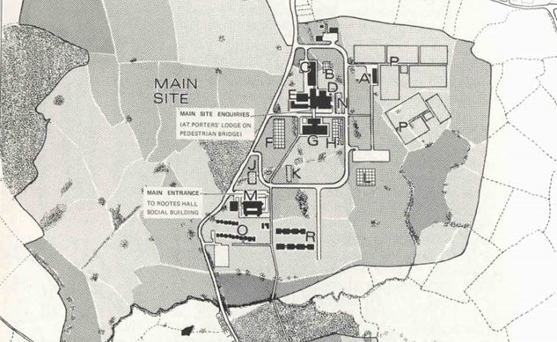Breadth, ‘National Needs’, and Reimagining the Role of the University in Society
The early University of Warwick
DOI:
https://doi.org/10.31273/eirj.v8i4.794Keywords:
Warwick, Higher Education, industry, New Universities, Butterworth, breadthAbstract
A persistent critique of university histories is their lack of consideration for the influence of external forces. How did the political and societal pressures of the 1960s inform understandings of the contributions that students and universities should make to society? This article investigates how pressures that the universities contribute to the ‘national need’ informed the design of studies and the built environment at the University of Warwick.
Vice-Chancellor of Warwick ‘Jack’ Butterworth in 1970 found himself and his university criticised for permitting an ‘oligarchy of industrialists,’ to subjugate the university and force it to mass-produce ‘capitalistic,’ managers. For Butterworth this was no coup but a reorientation of the purpose of a university towards public needs. At Warwick, a new university was imagined. Its environment and teaching programme stressed ‘breadth’ and spontaneity so that it might produce students armed with ‘pure’ knowledge to be ‘applied’ to practical issues of the day, particularly those found in industry. The nation needed such broad-minded, productive graduates in order to engender the prosperous liberal society. This educational philosophy is identifiable in Butterworth’s proposals for his business school, Warwick’s foiled attempt to merge with the local college of technology, and its unsuccessful early designs for halls of residence.
Downloads

Downloads
Published
Issue
Section
License
Copyright (c) 2021 Joshua Patel

This work is licensed under a Creative Commons Attribution 4.0 International License.
Authors who publish with this journal agree to the following terms:
Authors retain copyright and grant the journal right of first publication with the work simultaneously licensed under a Creative Commons Attribution License (CC-BY), which permits use and redistribution of the work provided that the original author and source are credited, a link to the license is included, and an indication of changes which were made. Third-party users may not apply legal terms or technological measures to the published article which legally restrict others from doing anything the license permits.
If accepted for publication authors’ work will be made open access and distributed under a Creative Commons Attribution (CC-BY) license unless previously agreed with Exchanges’ Editor-in-Chief prior to submission.
Authors are able to enter into separate, additional contractual arrangements for the non-exclusive distribution of the journal's published version of the work (e.g., post it to an institutional repository or publish it in a book), with an acknowledgement of its initial publication in this journal.
Authors are permitted and encouraged to post their work online (e.g., in institutional repositories or on their website) prior to and during the submission process, as it can lead to productive exchanges, as well as earlier and greater citation of published work. (see: The Effect of Open Access)
